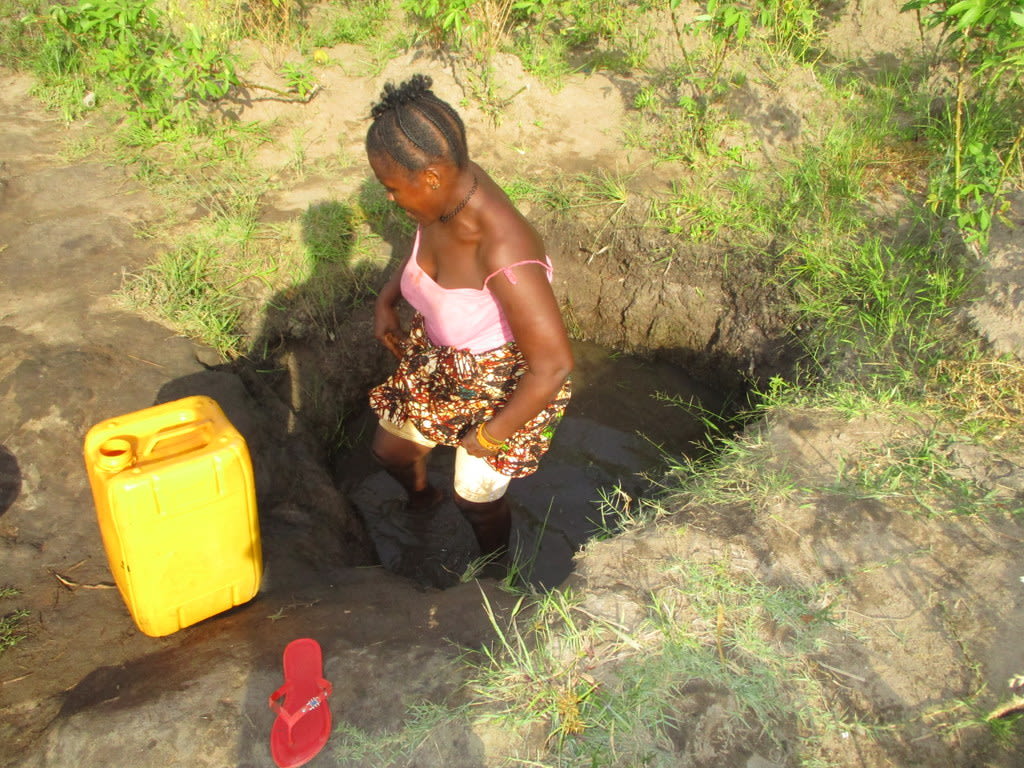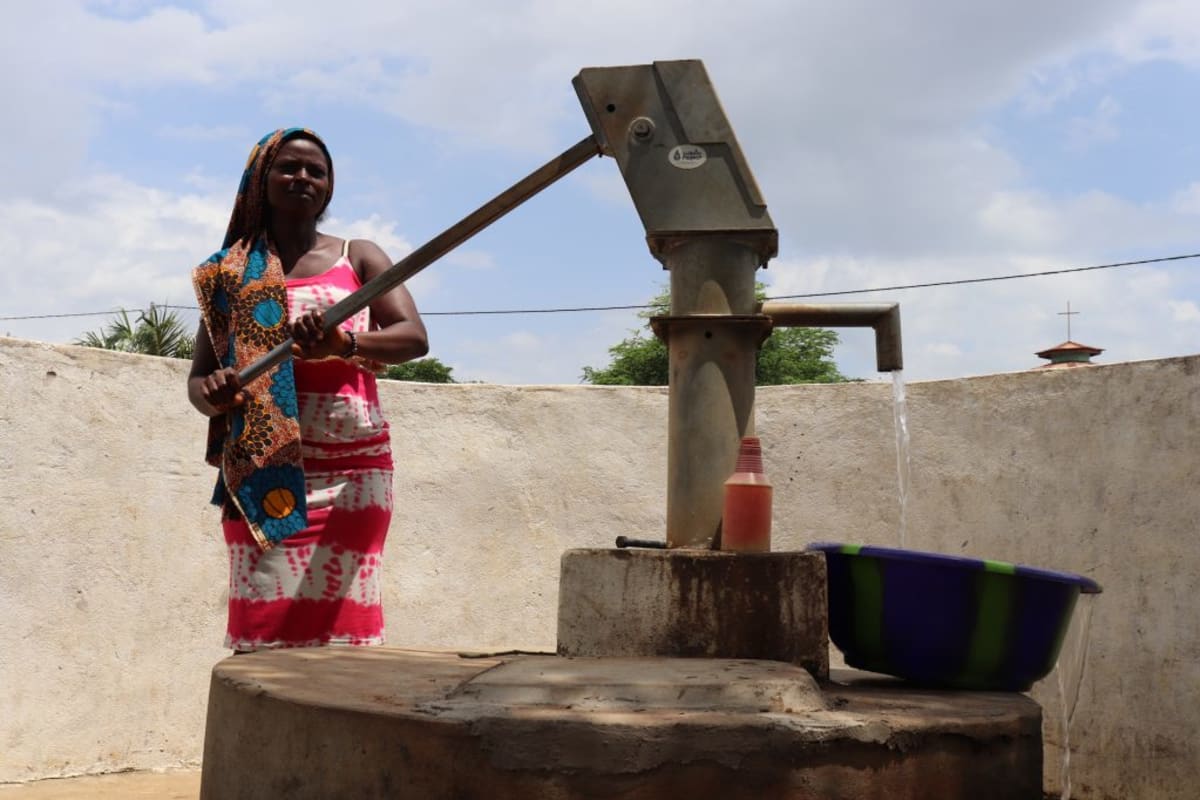The well at St. John's Catholic Church in Targrin was constructed in 2008 and maintained for the past decade. However, the water level dropped in recent years and needs to be deepened in order for the local community to still access safe water from it.
The well’s environment was clean when we visited. However, it was a totally different thing when we went to the nearby swamp where some people collect water. There was hardly any water in the holes at the swamp, and the one that had some water looks like a spot just for wild animals. The water had a yellowish color and the environment was dirty with waste water draining back into its original source. We found a well at the nearby school, but it was also dry (we plan to deepen this well, too).
Depending on the time of the year, water quantity can be low or dry in both protected wells and the swamp. Most hand-dug wells in this part of the country, where the water table is way below the reach of private local diggers are dry in the months of March, April through June. Water packets are available for purchase, but accessibility depends on one's purchasing power.
Cost is not an issue for the community sources, but there are other challenges. The swamp source is hard to reach in the due to the condition of the road. When the quantity in source becomes low the source starts to experience overcrowding. And it can be very dangerous to climb the hill with a container full of water, especially for elderly people.
St. John's Church has existed in this community for more than twenty years. This church’s involvement in this community has been and is still been very tremendous. They have built a school in this community and provided employment opportunities for some people in this community. They also allow the community people access to some of their facilities, for example, their school field is been used to host most of the community’s outdoor activities.
The houses in this community are mostly built with locally produced mud bricks but with cement plastering. They are built in straight lines on both sides of the highway with some scattered in the hinter part of the community. Most of the trees are cut down to make way for new homes and therefore is less vegetated. It is a very noisy community.
Here's what we're going to do about it:
Hygiene and Sanitation Training
There will be hygiene and sanitation training sessions offered for three days in a row.
No handwashing stations were observed here. After our visit, the hygiene and sanitation trainer decided it would be best to teach community members how to build a tippy tap (a hand-washing station built with a jerrycan, string, and sticks). They will use these tippy taps for handwashing demonstrations, and will also teach about other tools like dish racks and the importance of properly penning in animals.
These trainings will also strengthen the water user committee that manages and maintains this well. They enforce proper behavior and report to us whenever they need our help solving a serious problem, like a pump breakdown.
Well Rehabilitation
The well marked for this overhaul is dry for four months every year and needs major work to supply adequate, clean water to the community year round. The pump will be removed, and a hand auger will be lowered inside and powered by a drill team. This hand auger will allow the team to drill several meters deeper to hit a sufficient water column that will ensure the well supplies water throughout all seasons. As the team drills, casing will be installed, transforming the bottom of this hand-dug well into a borehole. PVC piping will connect this lower system directly to the pump, a construction that we know will also improve the quality of water.
Once this plan is implemented, everyone within the community will have access to safe drinking water in both quality and quantity, even through the dry months.
This project is a part of our shared program with Mariatu’s Hope. Our team is pleased to provide the reports for this project (edited for clarity) thanks to the hard work of our friends in Sierra Leone.

 Protected Dug Well
Protected Dug Well



























